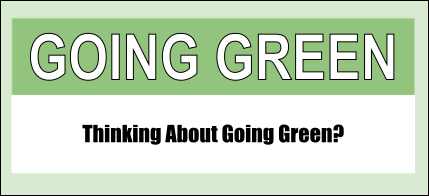OCTOBER 2023 – GOING GREEN

The Monthly Column of Advice, by Diana Barnett
There is a story that the Chinese invented paper about 2000 years ago after watching wasps make their nests? You may have seen or more likely heard wasps scraping their mandibles on your garden fence or wooden clothes pegs. They mix this with their saliva to build beautiful intricate nests. Inside they make hexagonal cells which are a perfect fit for the queen wasp’s larvae. These cells are in layers rather like a multi-storey car park supported by pillars also constructed from wood pulp but of a different quality. These nests are only used for a year so by late autumn all the occupants have died apart from the newly-mated females who will be next year’s queens. They would have left this nest to find their individual winter homes probably in your garden shed.
So if you find a wasps nest on your property, leave it till the colder months (unless it is somewhere you might accidently knock into), and then you can carefully remove and admire the wonderful structure. Wasps are an important part of our ecology very good at pest control and many other things. I am sorry
that I didn’t appreciate wasps in the past and got irritated by their tiny scraping sounds as they chewed wood in my garden. I have tinnitus now and can’t hear them anymore, same for crickets chirping in the garden. It seems as if my hearing loss is a physical metaphor for the disappearance of all the wonderful
diverse species that we used to share the world with. You only seem to miss it when it’s gone.
If you have been paying attention and reading the Henley Standard you will know that Greener Henley with Henley in Bloom promoted by the Standard have launched our own nature recovery campaign – Nature Squared. We are encouraging as many schools, businesses and residents in the area to plant one metre square of native wildflower plants in their gardens, plots, balconies, pots, troughs wherever possible. When grown these will make a network or urban corridor of habitat and food for our native species.
Free seeds are available at the Information Office at the Town Hall for which we would like you to register your postcode and if possible send us photos of your mini wildflower meadows. Our aim is to get 500 square metres of wildflowers in Henley and the surrounding villages.
I am sure there are many local gardeners that have early flowering plants they could share too. Things like primrose or lungwort. If you need help or advice with this, please contact https://greenerhenley.org.uk . Let’s make caring about biodiversity normal!
The same edition that launched Henley’s Nature Squared campaign carried the article about lighting the bridge with the headline “Make Henley Shine”. My response to that is “Please don’t for nature’s sake!” Although it might seem to us humans stringing up lights is a harmless pleasant thing to do, I can assure you that if you are a nocturnal creature it is far from harmless. I know this makes me sound like an Auntie Killjoy but here are some sobering facts.
Most of the animals that live on Earth are invertebrates, two-thirds of which are either wholly or partially nocturnal. Many of them do the same jobs as daytime species such as pollinating, recycling nutrients, carrying out natural pest control and providing food for other animals. Up to a third of insects
attracted to light will die through exhaustion, increased predation and a disrupted ability to navigate.
The situation is such that the nocturnal pollinator visits to flowers is down by 62% in some areas. Street lighting has caused a massive 52% decline in caterpillar numbers. Glow-worms communicate by glowing but are unable to do so in lit areas so populations have declined. Dung beetles need the stars and
moon to navigate but under light-polluted skies become disorientated and unable to find their way.
It’s not just insects that are impacted by artificial light. Migrating birds distracted by artificial light fly further as a consequence. Bats are troubled increasingly by artificial light disrupting their roosting and feeding behaviour. In the UK their diet of insects is rapidly disappearing.
Our freshwater ecosystems are being impacted by light levels. Increased light levels have been linked with trees bursting their buds earlier. Hedgehogs and other animals with nocturnal habits are also impacted and try to avoid lit places which affects their natural progress.
So please, we don’t need any more light – we need less.

